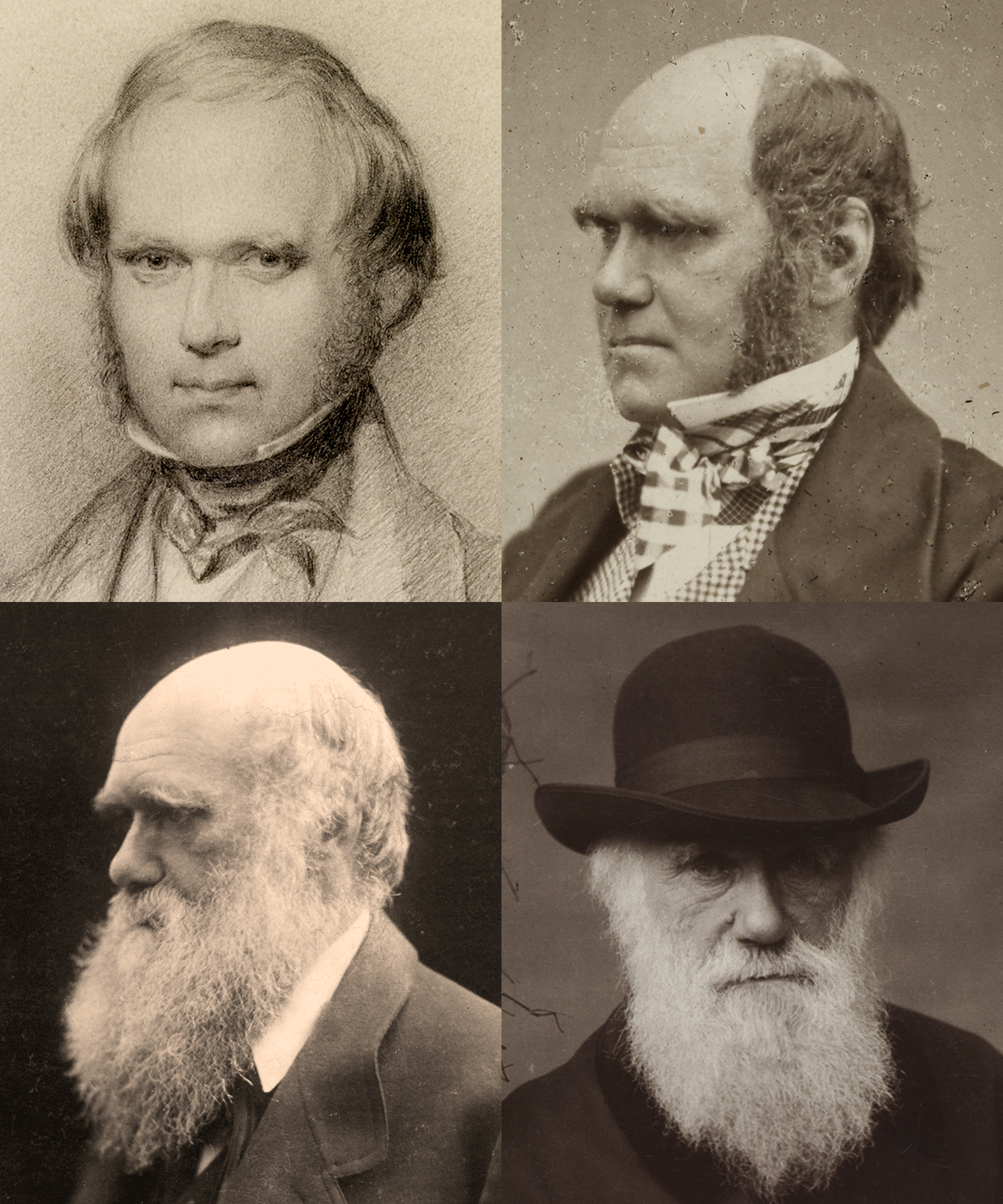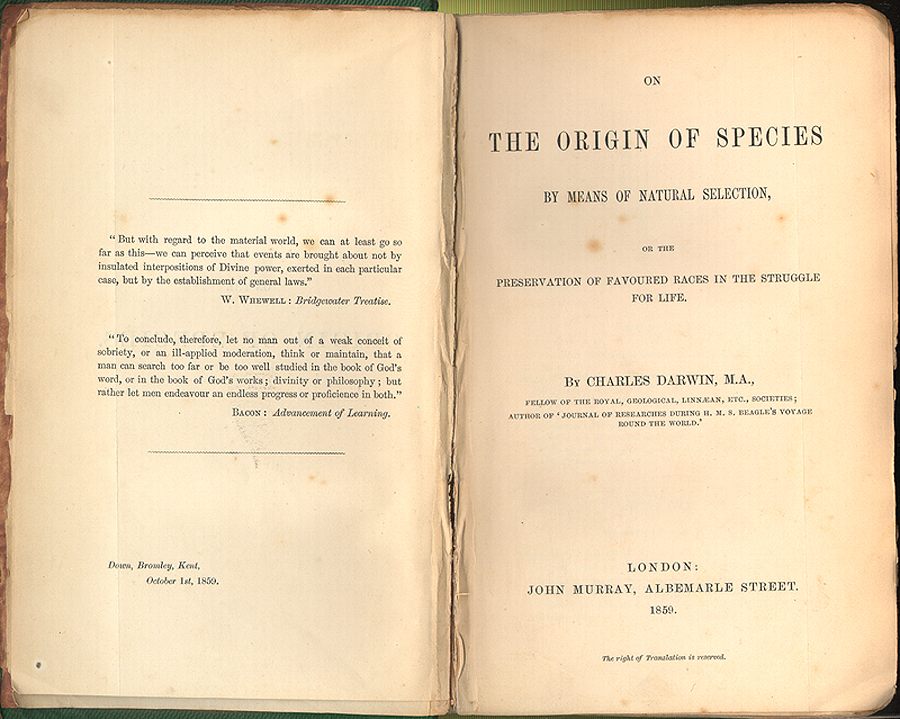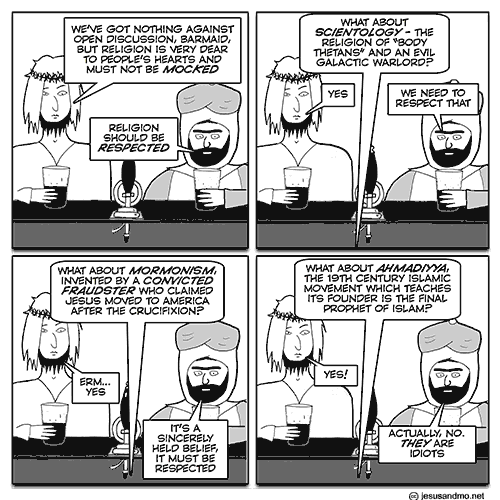Reading Darwin
This last Sunday February 12th was Darwin's Day!!! Important day! and what are we celebrating that day?Remembering the birthday of Charles Darwin the same February 12th in 1809: 207 years ago!
 |
| with [no] permission from the Darwin Correspondence Project |
Like Galileo's Dialogue Concerning the Two Chief World Systems, which compared the two astronomic systems until that day: the Ptolemaic system and the heliocentric Copernican system, Darwin's Origin has been a game changer in the perception we have of ourselves in nature, or a paradigm shift.
The biggest change, in my humble opinion, is about switching one more time Homo sapiens importance in the natural order. Although particular, the humankind and its members we are just another species of animal.
We are a social animal, which is not a particular trait, we can communicate, also in another group, but we have a complex machinery language driven by an intentional stance, which spawns several thousands languages) and keeps evolving actual ones; we can foresee future events, or at least we do our bets effort trying to predict our best next actions. We think and write about ourselves and we ask questions like "why are we here". However from the big perspective, we are another animal roaming the surface of this small speck in the vastness of space... maybe for a few hundreds thousands of years...
Why is Darwin's Day so important?
I like to quote here the main concepts by the Darwin's Day dot org. It is about celebration:
- Perpetual Curiosity
- Intellectual Bravery
- Hunger for Truth
 |
| Freedom of thought is best promoted by the gradual illumination of men's minds, which follows from the advance of science |
Quote: "The mission of International Darwin Day is to inspire people throughout the globe to reflect and act on the principles of intellectual bravery, perpetual curiosity, scientific thinking, and hunger for truth as embodied in Charles Darwin"
More from darwinday.org website:
"Vision International Darwin Day will inspire people throughout the globe to reflect and act on the principles of intellectual bravery, perpetual curiosity, scientific thinking, and hunger for truth as embodied in Charles Darwin. It will be a day of celebration, activism, and international cooperation for the advancement of science, education, and human well-being.
Local and state governments will close in commemoration of the Day, and organizations and businesses will celebrate by engaging in community outreach centered around science as a tool for the betterment of humanity.
Darwin Day will be observed by the United Nations and its members as an opportunity for international partnerships through the common language of science for the common good of all.
On the Origin of the Celebration Ever since Charles Darwin published his radically insightful book, On the Origin of Species, Darwin has been the focus of commemorations and tributes by scientists, artists, scholars, and freethinkers throughout the world. From the early gatherings after his death at his own Downe House, to bicentennial events all over the globe, celebrating science and humanity within our various cultures internationally has been a resonant and transcendent pursuit.
In 1909, on the 100th anniversary of his birth, large celebrations honoring Darwin’s contributions to science and humanity were held in Cambridge, New York and New Zealand. The University of Chicago commemorated the 100th anniversary of the publication of On the Origin of Species in 1959 with a series of notable events from November 24 through the 28th. The 200th anniversary of Darwin’s birth saw an entire season of BBC programming on Charles Darwin himself as well as evolution and natural selection. Salem State University has successfully held an annual Darwin Festival since 1980."
My take why it is so important and interesting
It is about a question or many questions that everybody ask themselves or their parents:- why are so many things?
- where were we come from?
- what are we?
- what is the origin of life?
- are other intelligent being things out there?
- and here on Earth?
- And many other interesting questions...
The way to answer this in a factual way started with the ancient Greeks. Or at least many agree on that point. You can call it philosophy or naturalism, or science starting in the 1600's or something around that. In any case, it is a very simple method:
- ask questions
- think about possible answers
- hypothesis
- try to think about ways to test your possible answers
- make sure you test in many different and independent ways
- double blind tests and
- if the results coincide with your hypothesis, and if it can make good predictions
- Iterate
If future tests, or field findings coincide, you are in the good path... if the results do not coincide with the hypothesis, go to back and think about new possible answers.
Quote: "Test ideas by experiment and observation, build on those ideas that pass the test, reject the ones that fail. Follow the evidence wherever it leads and question everything. Accept these terms, and the cosmos is yours"This method is powerful, and it has been the basis of everything that today amaze us: flying, going to the moon, flying to the Kuiper Belt, your TV/PS4/Wii/etc, vaccines, GMOs, etc. Just named it, you liked or not. It is all product of our ingenuity and building a web of interconnected facts and theories that support one to the other.
You cannot denied Evolution, without denying Geology. And if you deny it, you are at odds every time you start your car. Just think about that.
Resources
Resources Darwin 2017 - Virtual Issue []What is evolution? Charles Darwin's brilliant idea explained
What is Evolution?
What is Evolution - PBS Library
Evolution Explained
What is the Evidence for Evolution? []
Video: What is the Evidence for Evolution?
Why Evolution is True?
Evolution FAQ
And for a No to alternative lies, please check TalkOrigins anytime you do not know something







































